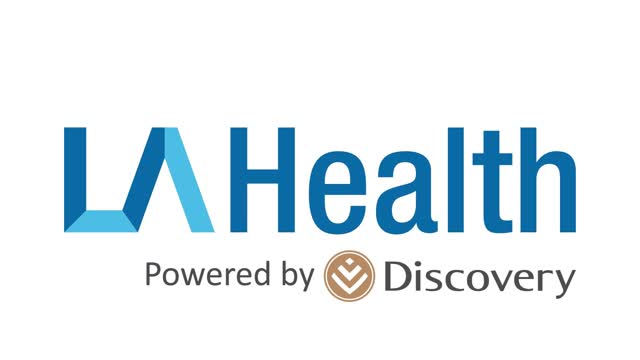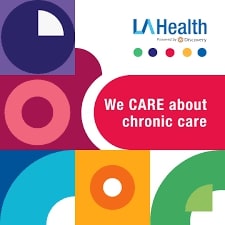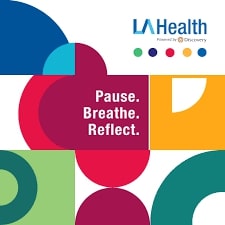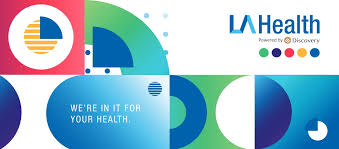Could your medical aid's 21 days of inpatient coverage, including a three day medically supervised detox, meet your recovery needs?
Medical Aid Covers Up To 21 Days Of Alcohol Rehab

La Health members are covered for their alcohol abuse disorder for up to 21 days in an inpatient rehab facility, including a 3-day medically supervised detoxification administered by a registered healthcare professional.
Substance use disorders are complex and multifaceted and need to be treated with an integrated approach to ensure long-term recovery. LA Health recognises the severity of addiction and offers comprehensive coverage to its members with varying plans and prices to suit different income brackets.
Medical Aid Plans, their coverage, benefits, limitations and exclusions may seem overwhelming, which is why the team at Changes Addiction Rehab have compiled this article to explain what the LA Health Medical Aid Scheme has to offer its members in terms of addiction rehab treatment coverage.
Alcohol Rehab Benefits
Members who struggle with alcohol abuse disorder can receive up to 21 days of inpatient treatment coverage; this includes a 3-day medically supervised detoxification.

Alcohol Detoxification
The detox from alcohol is an integral part of the treatment process for alcohol abuse. However, it should be noted a detox does not equal recovery and should instead be viewed as a stepping-stone to the next phase of treatment.
Detoxification is implemented to help individuals remove substances from the body while simultaneously treating the psychological symptoms and aftermath.
We offer an individualised approach at Changes Addiction Rehab as each patient’s needs and situation are considered; they will undergo a medical assessment to determine the severity of their condition and be administered a personalised detox.
During detoxification, patients may experience uncomfortable withdrawal symptoms; our round-the-clock medical health professionals will be there to monitor and offer support through the process.
Residential Alcohol Rehab
LA Health Medical Aid Scheme covers up to 21 days of inpatient treatment for substance abuse. However, members may be liable to a co-payment upon admission, as LA Health only pays a portion of residential rehabilitation.
Counselling And Therapy
Members can receive therapy session benefits for their alcohol abuse disorder.
LA Health offers a range of differing plans, from essential to comprehensive. Comprehensive plans provide more extensive benefits and may include more annual sessions and specialist visits.
Changes Addiction Rehab employs different therapeutic modalities to combat alcoholism and drug addiction, which manifests as a multifaceted, chronic brain disease.
These modalities include:
- Cognitive-Behavioural therapy (CBT)
- Dialectical Behavioral Therapy (DBT)
- Motivational Enhancement Therapy
- Family Therapy
- Group Therapy
Members can claim for these individual sessions through LA Health.

Outpatient Treatment Services
The outpatient treatment program is a transitionary phase of treatment after inpatient rehab. The ideal candidate for the outpatient program would have completed residential treatment and is ready to return to their responsibilities.
LA Health only covers specific services in the outpatient program, such as individual counselling.
How To Qualify For Coverage Through LA Health Medical Aid
For members to reap the full benefits from their claims, they should seek treatment at one of the designated service providers on the list offered by LA Health; if a member chooses a facility that is not on this list, they will be liable to a larger co-payment.
Lastly, a pre-authorisation process must be followed meticulously to receive coverage in an inpatient treatment facility. If the pre-authorisation is not approved, members will not receive coverage.
Claims Submission
Claims can be submitted to LA Health for reimbursement; supporting documentation such as relevant invoices, treatment plans, and medical reports need to be submitted alongside the claim forms, which can be found on the LA Health website.
Limitations And Exclusions
The plans offered by LA Health are subject to limitations and exclusions.
These include the following:
- The number of days a member will receive coverage is limited.
- LA Health does not cover secondary and halfway house phases of treatment, and members will be liable to pay privately.
- LA Health does not cover non-registered facilities
- Treatments that are not deemed medically necessary.
- Alternative forms of treatment.

The Pre-Authorisation Process
The pre-authorisation process to receive coverage from LA Health into a primary care facility for alcohol abuse is straightforward.
At Changes Addiction Rehab, we can do this procedure on your behalf. Once you call our facility, we will forward you to our admissions department. They will call LA Health and provide them with your ICD-10 codes and our facility’s practice numbers. The good news is that you won’t need a letter of motivation from a healthcare professional to be admitted.
Conclusion
LA Health Medical Aid offers extensive coverage to ensure that members get the care that they need for their substance use disorders.
Additionally, their plans range in comprehensiveness and pricing to accommodate their member’s diverse individual needs and budgets, making them accessible.
At Changes Addiction Rehab, we have a multidisciplinary clinical team to provide our patients with quality treatment for their addictions, making sure they have a fighting chance at long-term sustainable recovery.
Call us today at 081-444-7000 to start your pre-authorisation process.
FAQS
Does LA Health Offer Basic Plans?
The LA Health KeyPlus Plan is affordable, and members can receive addiction treatment coverage.
Can I Recieve Coverage For Alcohol Detoxification Through LA Health Medical Aid?
LA Health is legally obligated to cover 21 days of inpatient rehab treatment, including a 3-day medically supervised detoxification per year as it falls under the prescribed minimum benefits (PMBs).
Does LA Health Medical Aid Cover More Than One Inpatient Stay Per Year?
No, LA Health only covers one residential inpatient treatment stay per year.
If You Need More Information About Medical Aid Coverage For Addiction Treatment Click On The Following Links:
- Remedi
- Bestmed
- Medscheme
- Momentum
- Discovery
- Multi-Choice
- Compcare
- Genesis
- Medshield
- Gems
- Polmed
- Fedhealth
- SABC
FAQ: LA Health Medical Aid Rehab Cover
Does LA Health cover addiction treatment including detox?
Yes. LA Health covers up to 21 days of inpatient rehabilitation per year. This includes a medically supervised detox of up to 3 days, subject to plan rules and pre-authorisation.
What outpatient or therapy benefits does LA Health provide for addiction?
LA Health plans often include counselling, psychiatrist or psychologist visits, and therapy sessions as part of outpatient care. Benefits depend on the plan option and authorisation.
Does LA Health require pre-authorisation for rehab treatment?
Yes. Pre-authorisation is required. Changes Addiction Rehab assists with practice numbers and ICD-10 codes to secure approval and admission dates.






